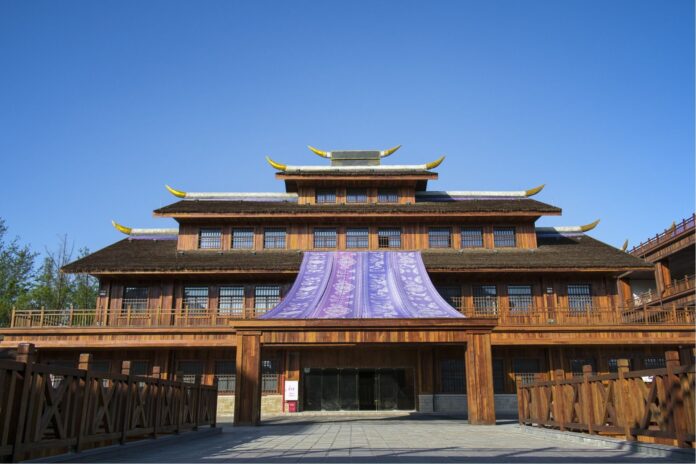Guiyang, the capital of Guizhou province of the People’s Republic of China, is renowned for its abundant mountain resources, favorable climate, and diverse ethnic tapestry, stands as a captivating destination for travelers. The city’s allure lies in its breathtaking natural landscapes encompassing mountains, rivers, forest sanctuaries, and rejuvenating hot springs. Guiyang, as a provincial capital teeming with diverse ethnic groups, notably the Miao and Buyi cultures, offers a distinctive and unique appeal.
In recent years, Guiyang has fervently explored the “tourism+” model, dedicated to delivering immersive travel experiences that harmoniously blend culture, wellness, agriculture, and ecology for its visitors.
In the realm of culture and tourism, Guiyang seamlessly weaves traditional ethnic culture into the travel experience. Visitors can venture into Miao and Buyi ethnic minority villages, immersing themselves in the customs, attire, and dances of these communities. Guiyang also hosts an array of ethnic cultural events, such as the Miao silver jewelry craftsmanship exhibition and the Buyi April 8th Song Festival.
Health and tourism converge in Guiyang as the city leverages its natural advantages to develop health-centric tourism. Travelers can indulge in activities like hot spring therapy, forest immersion, outdoor yoga, and other wholesome leisure pursuits. Furthermore, the city provides medical tourism services encompassing traditional Chinese medicine hot springs and ethnic medicine therapies.
Guiyang’s approach to agriculture and tourism integrates rural cuisine with travel, allowing visitors to savor local delicacies like sour soup fish and Miao-style sticky rice with chicken. Tourists can actively participate in agricultural experiences such as fruit picking, vegetable cultivation, and animal care, fostering a closer connection with nature.
Ecology and tourism thrive in Guiyang, with a strong emphasis on ecological conservation and green development within the tourism industry. The city boasts national-level nature reserves, forest preserves, and abundant ecological resources, offering tranquil and picturesque havens for leisure. Eco-friendly tourism programs like ecological hikes and nature observation provide tourists with opportunities to revel in the splendor of nature while promoting environmental awareness.
To further enhance the visitor experience, Guiyang adopts a “pleasant travel” approach, ensuring that tourists enjoy a relaxed and enjoyable journey throughout their stay. This approach encompasses a range of tailored measures catering to different age groups and consumer preferences. Parent-child packages allow families to explore nature and culture together, while younger travelers can immerse themselves in large-scale events like music festivals and food festivals, fostering engagement and interaction.
Even the bridges of Guizhou have undergone innovative transformations. The Sky Bridge Service Area, inspired by the landscape surrounding the world’s tallest concrete bridge tower, offers facilities including hotels, a bridge science museum, and RV campsites, attracting over 2 million visitors thus far. Guizhou now boasts nearly half of the world’s top 100 high bridges, and this valuable resource is harnessed to expand regional economic opportunities and stimulate growth in Guizhou tourism.
The Pingtang Grand Bridge has significantly reduced travel time between Yazhou Town and Tongzhou Town in Pingtang County, from 1 hour to a mere 3 minutes. This improved transportation infrastructure has catalyzed logistics development, substantially reducing losses in fruit transportation from 10-13% to approximately 1-3%. Under the shelter of the Pingtang Grand Bridge, a 10,000-mu fruit farming base has flourished, benefiting from the canyon climate and ample sunlight to cultivate 38 varieties of high-quality fruits, including loquat, bayberry, mulberry, and April peach. In the current year, the Sky Bridge Service Area has expanded its scope, contributing 1.04 million yuan to Pingli River through fruit and vegetable sales.


